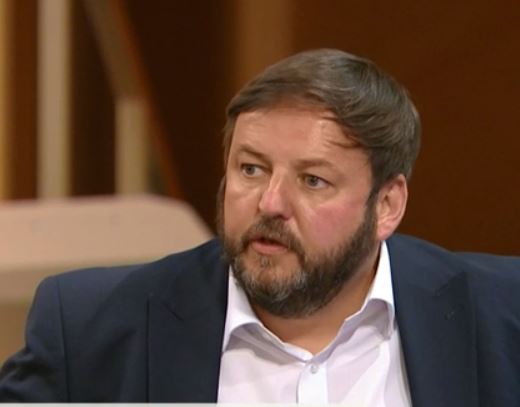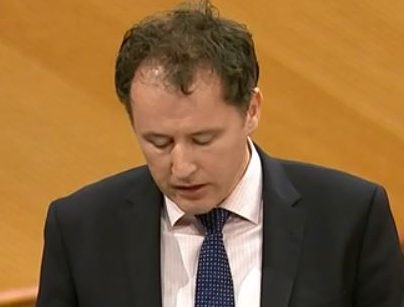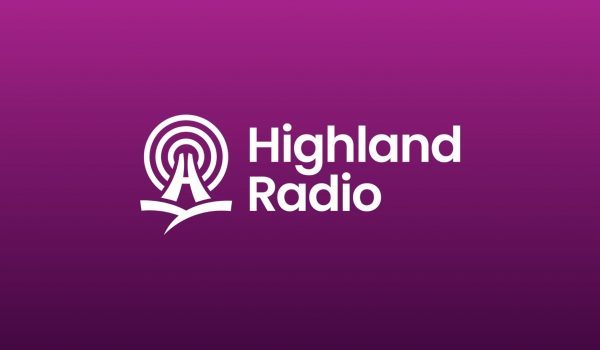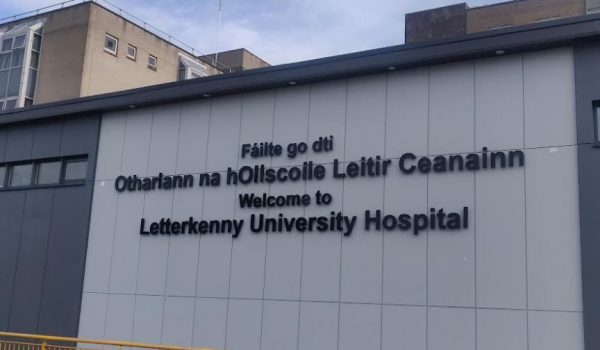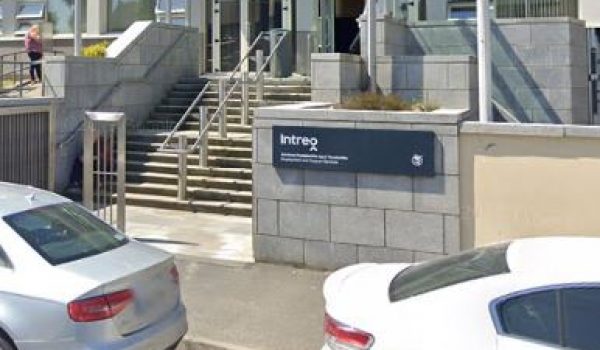Donegal TD Padraig MacLochlainn has again questioned European Commission’s claims that there was widespread over-fishing in Ireland, leading to a reduction in Ireland’s quotas last year.
He criticised the Government’s handling of the new weighing system that Irish fisheries have had to adhere to, following an EU investigation, details of which have not been published.
Deputy MacLochlainn was particularly scathing in his criticism of the Sea Fisheries Protection Authority, which he says still won’t publish the internal report about the affair, despite the fact that it’s been leaked to the media.
He says the Department and the SFPA are laws onto themselves…………….
Responding, Minister Charlie McConalogue stressed that action is being taken on foot of an EU decision, and the SFPA has a new Control Plan out to public consultation, based on what the EU has said………..
Minister Mc Conalogue’s Opening Statement to the debate –
Thank you, a Cheann Chomhairle.
I am glad to have this opportunity to update the House on matters relating to the Fisheries sector and our Coastal Communities.
I have had ongoing engagement with stakeholders in the Seafood Sector since I took office last year. Unfortunately, due COVID-19 restrictions I haven’t been able to engage with people on the pierside. In order to interact directly with members of coastal communities, last month I held a series of virtual Townhall meetings with coastal communities around Ireland. These virtual meetings allowed me to hear directly from those impacted by the COVID-19 pandemic and Brexit and to hear their ideas about the future of their communities.
In the coming months, and subject to the prevailing public health guidelines, I will visit our piers and harbours in person to meet with fishers and their communities to hear at first hand their views on the industry. I meet regularly with fishing industry representatives and will do so again on Monday next with An Taoiseach.
Brexit/Taskforce
The impact of Brexit on Ireland’s Seafood Sector is, understandably, a major concern for all those involved in, or connected with, the fishing industry.
The Trade and Cooperation Agreement agreed between the European Union and the UK will have significant negative impacts on our fisheries sector and on coastal communities dependent on fishing. The wider impacts of Brexit, for example the disturbance of established routes to market and established supply arrangements, will also negatively impact on some of our seafood enterprises.
In March this year, I established a Seafood Sector Taskforce to examine all of the potential impacts and to make recommendations to me for initiatives that could be taken to provide supports for development and restructuring so as to ensure a profitable and sustainable fishing fleet, and to identify opportunities for jobs and economic activity in coastal communities dependent on fishing.
I also asked the Task Force to consider and recommend constructive actions that would help to alleviate the inequitable relative contribution of quota share by Ireland in the TCA.
The Task Force is chaired by Aidan Cotter, assisted by Margaret Daly and Michéal Ó Cinnéide, and includes in its membership a large number of representatives of our Seafood Sector, together with a host of other experts from bodies that may have a key role to play in helping our Seafood Sector and coastal communities overcome this difficult time and continue to prosper.
Following seven meetings of the Taskforce, I have received the interim report from the Taskforce and I expect to receive a full report in the coming months. A copy of the interim report is available on BIM’s website.
The Interim Task Force Report, supported by all Members of the Taskforce, addressed the issue of burden sharing between Member States and recommends a range of initiatives to address the quota reductions in Trade and Co-operation Agreement. The Taskforce recommended a series of actions targeted at pelagic quotas and actions targeted at demersal quotas. The Interim Report indicates that the recommended actions, after further consideration by the Task Force, will be set down in detail in the main Report. The Interim Report also recommends a voluntary temporary tie-up scheme. The Taskforce recommends that the temporary tie-up scheme be put in place for the period September to December for the approximately 220 polyvalent vessels and beam trawlers directly impacted by the quota transfers under the TCA, with each vessel allowed to tie-up for one calendar month.
It recommends that payments should be calculated based on average gross earnings over the 2017-2019 period, excluding the cost of fuel and food.
Vessel owners must ensure that a certain percentage of the payment is distributed amongst the crew members of the vessel. Crew members availing of the Scheme must not take up alternative employment or claim benefits during the period of voluntary tie-up.
While the Refrigerated Seawater Pelagic segment , which engages in intensive seasonal fisheries, does not feature in the recommended temporary tie-up scheme, the interim report recognises that this segment has been subject to the largest TCA related quota reductions, in the order of €15.6 million in 2021. The Taskforce considered that because of the seasonal nature of pelagic fisheries it would be problematic to include these vessels in a tie-up scheme but is actively exploring other possible short-term supports as a matter of priority.
The Interim Report of the Taskforce also identifies a large number of possible actions that it may recommend in due course in its full report and that will seek to address the very inequitable share of quota transfers to the UK that Ireland is being asked to bear under the TCA, in comparison to other Member States.
The Report notes that the Taskforce wants to give further consideration to these possible actions, the challenges arising and how the actions may be progressed.
In the meantime, I will continue as I have done since December, to take every opportunity to raise the inequity of the quota cuts burden on Ireland with the Commission and other Member States.
The next review of the Common Fisheries Policy is due to be completed by the 31st December 2022 and I am committed to doing all possible through the upcoming review to secure additional quota where possible for Irish fishers. I will work closely with the Fishing Industry and in line with the recommendations of the final Seafood Taskforce Report to advance the position of the Irish fishing industry in the CFP Review.
In relation to the inshore fishing sector, the Interim Report of the Taskforce recognises the difficulties being faced by vessels targeting non-quota species, including inshore vessels less than 12 metres.
While these vessels are not directly impacted by the quota transfers under the TCA, they have suffered losses resulting from logistics and route to market issues arising from Brexit.
The Interim Report notes that the Taskforce is actively exploring short-term support measures for the inshore sector with a view to making recommendations in its final report.
The Programme for Government and my Action Plan 2021 strongly commits to supporting the inshore community and the wider Seafood Sector in achieving its potential.
I am pleased to note that work continues to implement the Strategy for the Irish Inshore Fisheries Sector 2019-2023. This is the first industry-led strategy for the Irish inshore fisheries sector.
Funding
In my Terms of Reference to the Taskforce I had asked that it consider how all available funding streams could be used to address, to the extent possible, the initiatives identified and the State agencies to support those initiatives. In its Interim Report, the Taskforce has noted that its full recommendations will in due course give rise to substantial public expenditure and recommends that during the 2021- 2023 period, the measures necessary to implement the Task Force recommendations should, to the greatest extent possible, be funded from Ireland’s EU allocation under the forthcoming Brexit Adjustment Reserve.
EU negotiations on the so-called BAR are still ongoing, but all going well Ireland expects to receive nearly €1.2 billion in current prices.
The BAR is fully EU funded and its objectives are to provide support to counter the adverse consequences BREXIT in Member States worst affected.
Of course, the BAR is not specific to our seafood sector and there will be many competing demands for funding from Irelands allocation under the BAR. Nevertheless, I am firmly of the view that the Seafood sector is a priority sector for funding under the BAR. The impacts of BREXIT are being felt across our economy, and any support measures for our seafood sector proposed to be funded under the BAR will need to be considered at Government level in the context of competing demands from other areas of our economy.
Another important funding source for the recommendations of the taskforce will be the new Seafood Development Programme for the 2021 to 27 period that is at present being prepared within my Department.
Similar to the present EMFF Programme for the 2014 to 20 period, which has been very successful in dispersing its €240 million budget, the new Programme will be an important source of funds for the development of our seafood sector and coastal communities.
I anticipate that the new Programme will be ready to send to the EU for its consideration by year end and will be operational early in 2022. In the meantime, I have agreed arrangements for an interim capital support scheme for fisheries, aquaculture and processing funded under the new Programme. This will allow fishers to continue investing in energy efficiency, value-adding and health and safety measures on board and will allow our aquaculture farmers to continue investing in growing their production.
The seven Fisheries Local action Groups have been a very successful innovation over the past 4 years, dispersing €12 million in grant aid to projects in our coastal communities. This compares to just €1 million under the pilot FLAG scheme that briefly operated before that.
Demand for grants under the FLAG scheme have far outstripped available resources. This demonstrates the phenomenal entrepreneurial spirit that exists in our coastal communities, with many new marine tourism and leisure businesses seeking to take advantage of the fantastic natural assets we have around our coast.
To ensure the continued success of the FLAG initiative, my Department is working with BIM to invite expressions of interest for FLAG groups for the 2021-27 period under the new Seafood Development Programme.
Subject to the recommendations of the Taskforce, I will be seeking to ensure the FLAG initiative continues to be well funded so that it can achieve its potential and make an important contribution to growing prosperity in our coastal communities.
Seafood Market and Trade
The Programme for Government recognises the importance of exports to Ireland’s open economy. This is key in the Seafood Sector which is largely export driven.
However, the COVID-19 pandemic caused unprecedented disruption to our traditional seafood markets and supply chains. Ireland’s top five export partners for seafood – France, the UK, Spain, Italy and China – were all severely impacted, particularly in the initial months of the pandemic.
Irish seafood exports were valued at €590 million in 2020. This is in the context of 2020 being extremely fragile with both the domestic and export markets reacting to the ongoing challenges posed by the COVID 19 pandemic and of course the UK’s departure from the EU.
Even in the context of these challenges, opportunities have emerged. While exports to key markets in Europe and Asia fell, the value of exports to Africa grew by 87% and by 43% to the Middle East, driven by increased exports of mackerel.
This year has shown some signs of recovery as seafood exports to France and Spain in January grew by 76% in value terms compared to the same period in 2020.
Re-establishing the presence of Irish seafood in our key markets particularly in Europe and Asia must be a priority for us in 2021. If we take 2019 as our baseline, pre COVID-19, our seafood industry was worth €1.22 billion to the Irish economy. Of this, exports comprised €640 million. This is where Ireland needs to return to in the short-term.
The Government’s focus on, and commitment to, new market development also remains firmly on the agenda. Up to December 2020, €8 million has been allocated to Bord Bia under the European Maritime and Fisheries Fund Programme 2014-2020 to augment existing funds to promote Irish Seafood on the domestic and international markets.
A further allocation of €2 million in 2021 will contribute to Bord Bia’s overall seafood promotion strategy which includes:
- the recovery of lost market share as a result of COVID-19;
- recruitment of new trade customers in priority markets and
- targeting an increase consumption of Irish landed fish on the domestic market.
The impact of Brexit on seafood trade isn’t behind us yet either. Throughout June and July, BIM will be communicating the changes which will come into effect from the 1st October 2021 through the BIM Brexit Hub. BIM will also host a series of industry webinars commencing in early August to outline how the 1st October changes will impact Irish Seafood Businesses. I would encourage all Irish seafood producers to make use of these opportunities and Be Brexit Ready.
Aquaculture Licensing
Turning now to the Aquaculture sector, in December 2016 the then Minister appointed an independent Aquaculture Licensing Review Group to review the process of licensing for aquaculture and its associated legal framework. The report of the Licensing Review Group was submitted to my Department in May 2017.
A key recommendation of the Report was that my Department put in place a strategy to eliminate the backlog of licence applications. This has been the primary focus of my Department since the publication of the Report and has resulted in over 1,200 licence determinations being made since 2012.
The backlog in shellfish licensing has now been eliminated as an issue affecting the industry and my Department is now focusing on maintaining the equilibrium with regard to shellfish licence applications and also addressing the backlog in marine finfish aquaculture licence applications.
The processing of these applications is however significantly more complex than the shellfish applications not least due to the requirement that the application whether for renewal of an existing licence or for a new licence, be accompanied by an Environmental Impact Statement or in the case of applications received after the 16th May 2017 an Environmental Impact Assessment Report. This requirement is set out clearly in EU and national legislation and applications cannot be progressed in its absence.
My Department has been actively engaged with applicants in relation to this matter and considerable progress has been made in this regard.
In the meantime, and pending the determination of applications for marine finfish aquaculture licences, national legislation provides for the continued operation of aquaculture sites by operators of their sites subject to compliance with the terms and conditions of aquaculture licences.
The progress made in relation to both shellfish and marine finfish licensing will continue to pay dividends for both the aquaculture industry and coastal communities.
Fishery Harbour Centres
As Deputies will be aware, Fishery Harbour Centres are established under the Fishery Harbour Centre Act 1968 as centres in which to promote, develop and carry on sea-fishing, including the production and sale of fish and fish products and related activities.
The six centres designated under the legislation – Howth, Dunmore East, Castletownbere, Dingle, Ros an Mhíl and Killybegs – are owned and managed and operated by my Department under Statute. In addition, my Department also has responsibility for North Harbour at Cape Clear Island and for maintaining a range of piers, lights and beacons around the coast.
The utilisation of the Fishery Harbour Centres facilities has increased substantially in recent years, and this in line with Government’s strategy to increase the landings potential of the Fishery Harbour Centres.
Around 85% of all fish landed into Ireland is now landed at the six harbours. The total value of all landings into the six Fishery Harbour Centres increased from €224 million in 2013 to €257 million in 2020.
In addition to the fisheries and seafood production industries, the harbours accommodate ever increasing amounts of diverse commercial business including, commercial cargo traffic, cruise liners, restaurants and other leisure, tourism and social activities.
At the end of 2019, the Fishery Harbour Centres were valued by the Valuation Office at €456 million, and as such they represent a significant State asset.
I was delighted to recently announce a €38.3 million capital investment package in our six Fishery Harbour Centres as well as 79 Local Authority owned piers and harbours around our coast.
This investment underscores the importance this Government places on the contribution of the wider Seafood Sector to Ireland’s economy and to rural coastal communities.
As I said when I announced the package – it is important to me to place added importance on the Local Authority scheme this year and so I was pleased to be to in a position to announce an enhanced €4.2 million programme in 2021 to assist Coastal Local Authorities in the repair and development of fishery and aquaculture linked marine infrastructures under their ownership.
Through this package, I am making available funding for a diverse suite of 79 projects geographically spread across 12 Local Authorities which will improve the amenities provided to the wider marine community in these coastal areas.
Over the last year, our outdoor spaces have become even more important to us as an amenity and the refurbishment of our harbours will support fishers, tourism and have many other benefits for local coastal communities.
Conclusion
It would be impossible to cover in detail every issue relating to fisheries and coastal communities today. I have tried to provide an overview of the some of the main issues and developments and will address some additional points in my closing statement.
I am acutely aware of the challenges facing the Seafood Sector. I can assure the House that this Government is committed to work with the Seafood Sector to meet those challenges and provide a clear path for the growth of the sector, and the coastal communities dependent upon it, in the years ahead.
